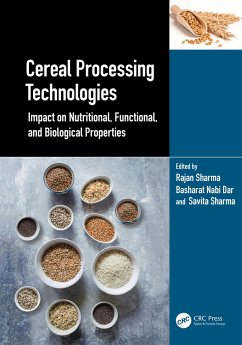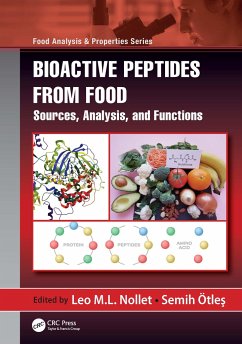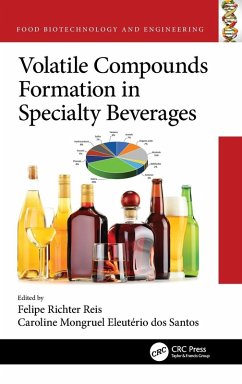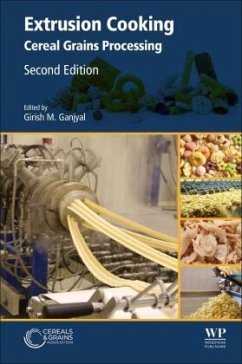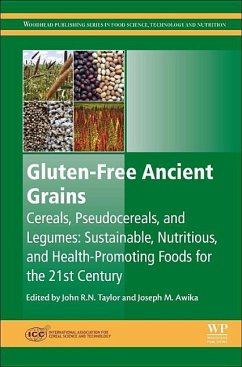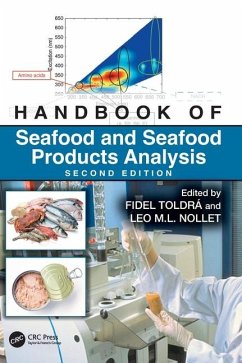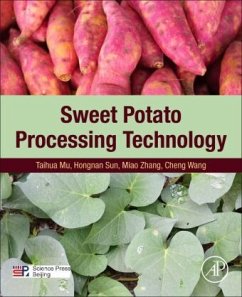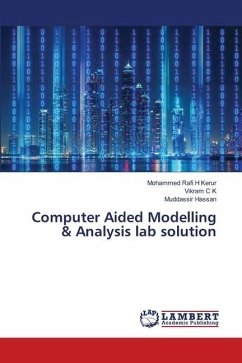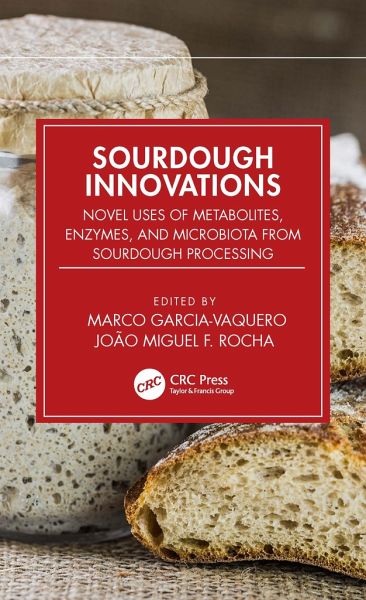
Sourdough Innovations
Novel Uses of Metabolites, Enzymes, and Microbiota from Sourdough Processing
Herausgegeben: Garcia-Vaquero, Marco; Rocha, João Miguel F.
Versandkostenfrei!
Versandfertig in 6-10 Tagen
161,99 €
inkl. MwSt.
Weitere Ausgaben:

PAYBACK Punkte
81 °P sammeln!
Sourdough fermentation was probably one of the first microbial processes employed by mankind for the production and preservation of food. This practice is still widely used worldwide due to the distinct sensorial and health properties attributed to these products. Traditional sourdough bread is achieved by spontaneous fermentations, leading to natural selections of microorganisms (mainly yeast and lactic acid bacteria) with health benefits for the consumers' microbiota. However, multiple opportunities are currently underexploited through the entire sourdough value chain. Sourdough Innovations:...
Sourdough fermentation was probably one of the first microbial processes employed by mankind for the production and preservation of food. This practice is still widely used worldwide due to the distinct sensorial and health properties attributed to these products. Traditional sourdough bread is achieved by spontaneous fermentations, leading to natural selections of microorganisms (mainly yeast and lactic acid bacteria) with health benefits for the consumers' microbiota. However, multiple opportunities are currently underexploited through the entire sourdough value chain. Sourdough Innovations: Novel Uses of Metabolites, Enzymes, and Microbiota from Sourdough Processing summarizes the latest scientific knowledge and current opportunities of sourdough technology at biomass, microbiota and enzymatic levels described in three distinctive sections.
Section I covers the fermentation process of cereals and non-cereals to produce sourdough-containing compounds with health-enhancement benefits. Section II includes novel advances in sourdough enzymology, and last, Section III explores various applications of sourdough microbiota as antimicrobial and probiotic microorganisms and opportunities to be included in both food and non-food applications.
Key Features:
Includes extensive information on the use of innovative or emerging technologies aiming to promote circular exploitation systemsPromotes the full use of the cereal and non-cereal sourdough metabolitesCovers the functionality of sourdough microorganisms and functional compounds, and future exploitation of some of them in the field of nutraceuticals or functional foods
Sourdough Innovations is unique in its examination of health beneficial compounds through the downstream processing of sourdough from cereals, microbiota, and enzymes. It is a great source for academic staff and scientists within the broad area of food science who are researching, lecturing, or developing their professionalcareers in food microbiology, food chemistry, food processing, and food technology, including bio-process engineers interested in the development of novel technological improvements in sourdough processing.
Section I covers the fermentation process of cereals and non-cereals to produce sourdough-containing compounds with health-enhancement benefits. Section II includes novel advances in sourdough enzymology, and last, Section III explores various applications of sourdough microbiota as antimicrobial and probiotic microorganisms and opportunities to be included in both food and non-food applications.
Key Features:
Includes extensive information on the use of innovative or emerging technologies aiming to promote circular exploitation systemsPromotes the full use of the cereal and non-cereal sourdough metabolitesCovers the functionality of sourdough microorganisms and functional compounds, and future exploitation of some of them in the field of nutraceuticals or functional foods
Sourdough Innovations is unique in its examination of health beneficial compounds through the downstream processing of sourdough from cereals, microbiota, and enzymes. It is a great source for academic staff and scientists within the broad area of food science who are researching, lecturing, or developing their professionalcareers in food microbiology, food chemistry, food processing, and food technology, including bio-process engineers interested in the development of novel technological improvements in sourdough processing.





